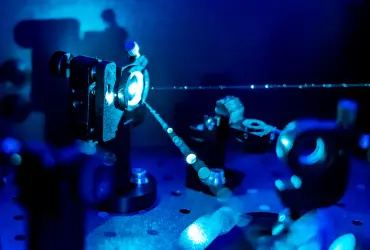Turn All Business Travel Into a Holiday
with a Team That Understands
What You Need
Upcoming Trade Shows Munich, Germany for Optoelectronics

LASER World of PHOTONICS 2027, Munich, Germany
22 - 25 Jun 2027
Technological research is the bread and butter of Munich—a city that’s been pulling in impressive international investments for decades and has one of the best networks of research institutions in the whole of Germany. Naturally, resources are delegated to optoelectronics industry, which has been one of the big earners for the German economy. There are two institutions worth mentioning here: Ludwig-Maximilians-Universität München (LMU) and Huawei's Munich Research Center.
LMU is spearheading research in optoelectronic technology, particularly in the field of organic materials and semiconductor nanocrystals. Scientists at LMU are investigating the optical and electronic properties of molecular semiconductors, aiming to enhance photonic and optoelectronic applications. Researchers use advanced time-resolved laser spectroscopy to study the transient response of photoexcitations in semiconducting polymers and small molecules, which gives crucial insights for the development of next-generation LEDs and solar cells. Additionally, LMU’s work in semiconductor nanocrystals is leading to remarkable discoveries in quantum confinement. Researchers are exploring heterostructures with complex geometries to control single-photon emission and charge separation. Hybrid materials, which combine the properties of different components for enhanced collective responses, are another key focus area, holding promise for improved efficiency in optoelectronic devices.
Huawei’s Research Centre runs the Optical & Quantum Communications Laboratory, one of the company’s most advanced research facilities. The laboratory is dedicated to developing cutting-edge components, algorithms, and systems for optical telecommunications, data center networks, fixed access, and automotive applications. It’s the premier employer for professionals working in the optoelectronics industry in Munich. The facility comprises several specialized research teams, each focused on distinct aspects of optical communication. For instance, the Access Team is tasked with developing next-generation multi-user access technologies, including systems, components, and standards to support the evolution of network infrastructure.
GET A FREE QUOTE
Looking for a hotel accommodation for particular trade show or exhibition.
Send us a general enquiry and we will find the best options for you
Send us a general enquiry and we will find the best options for you